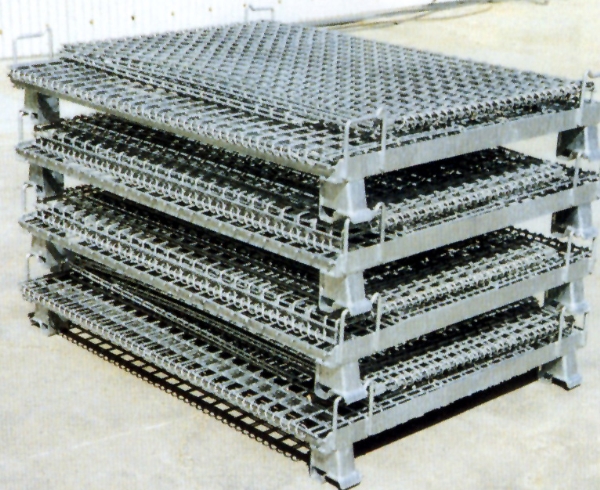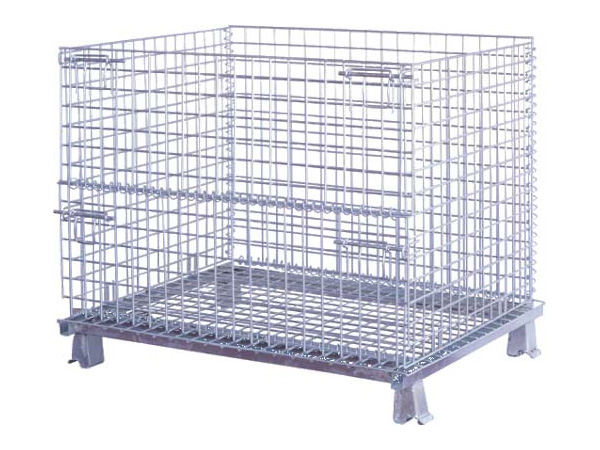If you’re running out of space at home, managing a business with excess inventory, or just trying to declutter, you’ve probably asked yourself: Are storage cages worth the investment? Storage cages—also known as storage lockers or secured storage units—are a popular solution for many Americans looking to maximize space without breaking the bank. But before you rush to rent or buy one, let’s dive into the pros, cons, and key factors you need to consider.
Let’s start with the basics. A storage cage is a secure, enclosed space typically made of heavy-duty metal mesh or steel panels. These cages are commonly found in self-storage facilities, apartment complexes, warehouses, or even commercial buildings. They’re designed to protect belongings from theft, dust, and damage while keeping them easily accessible. Unlike traditional storage units, which are often room-sized and fully enclosed, storage cages are modular, customizable, and ideal for smaller or medium-sized items.
The keyword here is versatility. Whether you’re storing seasonal decorations, business archives, or furniture during a move, a storage cage adapts to your needs. But does that adaptability translate to value? Let’s break it down.

One of the biggest selling points of a storage cage is security. Most cages are built with tamper-resistant materials and feature lockable doors. In shared facilities, they’re often monitored by 24/7 surveillance cameras or onsite staff. For example, if you’re storing expensive tools or family heirlooms, a storage cage reduces the risk of theft compared to leaving items in a garage or basement.
Renting a storage cage is usually cheaper than leasing a traditional storage unit. Prices vary by location and size, but on average, you might pay 50–50–150 monthly for a cage, whereas larger units can cost $200 or more. For budget-conscious users, this makes storage cages a smart way to free up space without overspending.
Need more space next year? Many storage facilities let you upgrade to a larger cage or add multiple cages as your needs grow. This scalability is perfect for small businesses, hobbyists, or families anticipating future storage demands.
Worried about humidity ruining your vintage vinyl collection? Many modern storage cages are housed in climate-controlled facilities, protecting sensitive items from extreme temperatures and moisture.
Of course, storage cages aren’t perfect for everyone. Here are a few drawbacks to weigh:
While storage cages are secure, accessing them might require visiting a facility during specific hours. If you need to grab something at midnight, you might be out of luck—unless the facility offers 24/7 access (which often costs extra).
While cheaper than larger units, monthly rental fees add up over time. If you’re storing items indefinitely, those $50 payments could eventually exceed the value of what you’re storing. Always ask: Is this a short-term fix or a long-term necessity?
Storage cages work great for boxes, furniture, and equipment, but they’re not ideal for oversized items like vehicles or boats. Always check size restrictions before committing.
So, who should consider a storage cage? Here are three scenarios where they shine:
City dwellers in apartments or condos often lack basements or attics. A storage cage in a nearby facility can hold seasonal gear (skis, holiday decor) or bulky furniture without cluttering a tiny living space.
Small businesses, especially e-commerce sellers or contractors, use storage cages to manage inventory, tools, or documents. For example, a florist might store vases and seasonal decorations in a cage to keep their shop floor organized.
During a home renovation or relocation, a storage cage keeps belongings safe and out of the way. It’s a temporary solution that avoids the hassle of cramming boxes into a friend’s garage.

Not all storage cages are created equal. Follow these tips to pick the best option:
Let’s talk numbers. Suppose you’re storing items worth 2,000.Rentinga2,000.Rentinga75/month storage cage for a year costs $900. Buying a shed or expanding your home’s storage space could cost thousands upfront. For short-term needs, storage cages win. But for long-term storage (5+ years), investing in a permanent solution might be smarter.
So, what’s the answer? Storage cages are absolutely worth it—if they align with your specific needs. They offer affordability, security, and flexibility for users who need temporary or scalable storage. However, if you require 24/7 access, have oversized items, or plan to store things indefinitely, explore other options.
Before signing a contract, visit a few facilities, ask questions, and even negotiate pricing. With the right research, a storage cage could be the perfect way to reclaim your space—and your peace of mind.
 Wechat
Wechat
 Whatsapp
Whatsapp